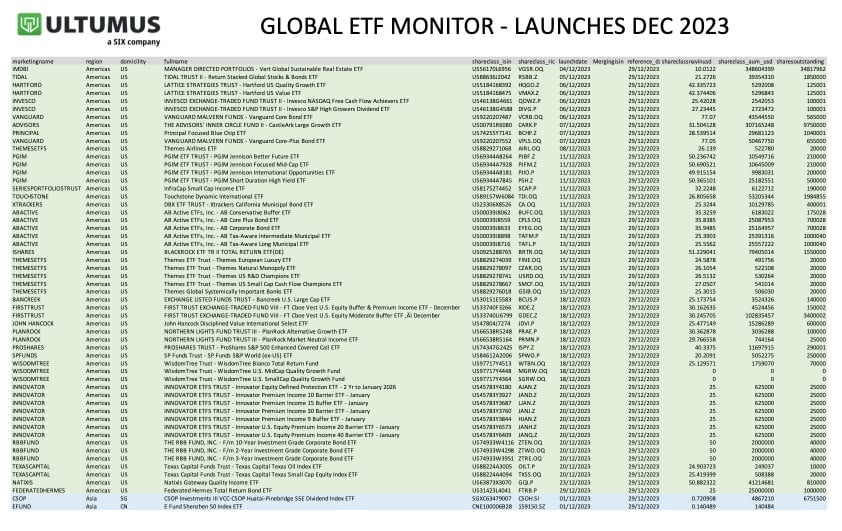USA
Rex Shares lists actively managed blockchain and cryptocurrency ETF
Connecticut-based Rex Shares is teaming up with Vident Investment Advisory to list a new actively managed ETF that tracks “cryptocurrency-related companies” and – we presume – will buy bitcoin futures. The REX BKCM ETF (BKC) will invest in blockchain companies while leaving 25% of its funds open to investing in a Cayman Islands subsidiary.
BKC starts by investing up to 75% of its funds in blockchain companies of any size. Blockchain companies are roped into five categories:
(1) “Cryptocurrency Payees,” i.e., companies that accept cryptocurrency as payment
(2) “Mining Enablers,” i.e., companies that make software or hardware enabling blockchain;
(3) “Solutions Providers,” i.e., companies that help build and apply blockchain tech;
(4) “Blockchain Users,” i.e., companies that use blockchain;
(5) “Cryptocurrency Service Providers,” i.e., companies that cryptocurrency services
The fund is actively managed and does not take a rules-based approach, meaning blockchain companies can be chosen arbitrarily by BKCM. “As such, there may be times when the Fund’s investments in Cryptocurrency Stocks may not include Cryptocurrency Stocks in all of the above-listed categories,” the prospectus says.
BKC keeps open 25% of the fund to invest in Cayman Islands subsidiaries. The subsidiaries, "are expected to provide the Fund with an effective means of obtaining exposure to certain cryptocurrency investments," the prospectus says. We presume this means bitcoin futures (see analysis).
Analysis – using the Cayman Islands to invest in bitcoin futures
Cayman Islands subsidiaries are often used by American ETFs – especially commodity ETFs – as a way of holding futures. The problem ETF issuers have had is that if they hold futures directly they are deemed by the IRS to be futures traders and are taxed accordingly. To get around this, ETF issuers get a Cayman Islands subsidiary to do the futures holding dirty work for them. They then just own equity in the Cayman subsidiary.
We anticipate that the purpose of leaving 25% of its fund open to Cayman subsidiaries is to invest in bitcoin and other crypto futures, which are now trading on CBOE exchanges. (Its competitors ICE and NASDAQ are indicating that they may do something similar soon too.) But, it would appear, that to say so outright would draw the dissatisfaction of the SEC. The prospectus says only that the Cayman subsidiaries “will have the same investment objective as the Fund.” Yet the prospectus says only that the funds objective is to “provide total return.”
One wonders what the SEC’s position is on bitcoin actually is (Does it have one? And does it need to?). One also wonders how such a loosely written prospectus got past the regulators.




